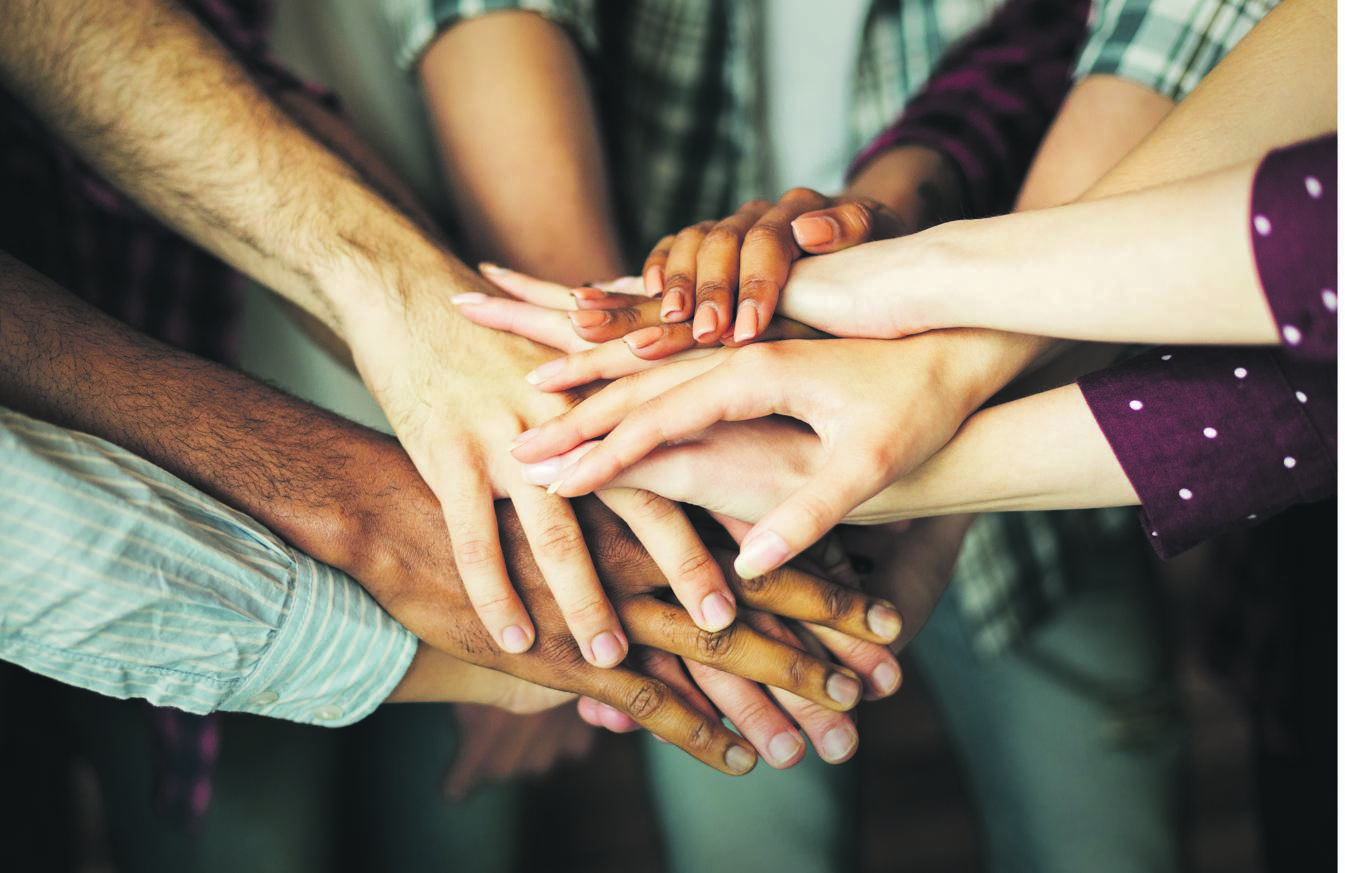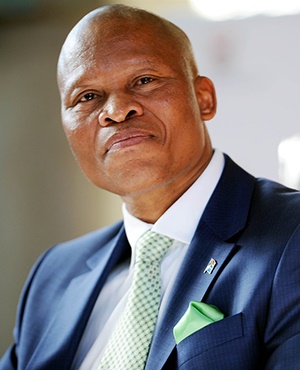
It starts with each of us doing the work of healing ourselves to enable us to play our roles as critical thinking citizens
Chief Justice Mogoeng Mogoeng, in his challenging Nelson Mandela Annual Lecture, asked why despite our celebrated Constitution we seem to be a society that acts in extreme ways in violation of the human rights values enshrined in it.
He stressed that we are not unique in experiencing crime, violence and corruption.
What is unique are the extreme lengths to which we are prepared to go in wrongdoing.
The extreme levels of corruption are exemplified by state capture, which made R500 billion disappear from the public purse in less than 10 years.
What was also unique in the nature of our corruption was the extent of impunity in the repurposing of public institutions by a sitting president to enable the abuse of public resources to benefit his family and friends.
The silence and acquiescence by those in the governing party added to the unique levels of impunity, which has become ingrained in our political culture.
Read: The scale at which we do wrong things tends to be on the extreme – Mogoeng
Daron Acemoglu and James Robinson, in their book Why Nations Fail, provide insights into the importance of appropriate political institutions to enable citizens to hold their leaders accountable.
“The logic of pluralistic political institutions makes usurpation of power by a dictator, a faction within government, or even a well-meaning president much more difficult ... Inclusive political institutions support and are supported by inclusive economic institutions...Nations fail today because extractive economic institutions do not create the incentives needed for people to save, invest and innovate.”
Our experience over the past 25 years demonstrates the limitations of our institutions in the promotion and protection of democracy and inclusive socioeconomic development.
Our electoral system, with its focus on proportional representation, has been fingered as a major contributor to the weak accountability levels in our political system.
The power of party leaders who decide on who gets on the electoral candidate lists, and in what order, undermines the ability of citizens to hold their public representatives accountable.
Loyalty to political parties trumps oaths of office by public representatives.
Parliament continues to fail to hold the executive accountable for abuse of state resources.
The call for electoral reform to promote a greater focus on constituency-based representatives is seen as the answer to enhancing accountability.
We should be more cautious in embracing this call, given that our current electoral system does provide for a mixed proportional and direct representation at local level.
Experience over the past 25 years has not demonstrated greater accountability among ward councillors who are directly elected.
The majority of citizens in the poorest areas do not seem to be able to hold their ward councillors accountable.
Councillors seem to use their newfound positions to move up the socioeconomic ladder, paying scant attention to those who voted for them.
Frustration among citizens repeatedly spills over into public violence and destruction of property.
It seems that our problems are much deeper than just the nature of the electoral system.
Greater attention needs to be paid to the nature of our political culture, which is understood here to mean “a set of attitudes, beliefs and sentiments that give order and meaning to a political process and which provide the underlying assumptions and rules that govern behaviour in the political system”.
How much have we invested in the establishment of shared understanding of the rules and behaviours that govern our political system, which are aligned to our human rights over the past 25 years?
How did we expect to emerge out of a brutal colonial, apartheid and divide-and-rule Bantustan politics with a set of shared attitudes, assumptions and rules to govern behaviour in our political system?
We have no civic education in our education system, faith communities, workplaces or public service.
The efforts of the Electoral Commission of SA in voter education do not go beyond the process of voting.
The rights and responsibilities of citizens to elect representatives who live the values of our Constitution are not part of the voter education process.
Our education system is generally silent about preparing young people for citizenship.
How then do we expect citizens to be empowered to use their votes to promote strong, accountable governance?
The root problem seems to be the lack of a common identity as citizens. We continue to self-identify in colour-coded terms.
We socialise and do business more comfortably within the boundaries of these colour-coded fault lines.
The lack of a shared identity undermines the evolution of a shared value system, a sense of civic responsibility and empathy for our fellow citizens.
The horrific levels of gender-based violence, the brutality of interpersonal violence and the carnage on our roads reflect this lack of shared values and empathy.
We know from neuroscience that multigenerational trauma and abuse of human beings result in wounds that undermine their ability to function.
Our democracy is being held hostage by our reluctance to accept that we carry the wounds of the humiliation of colonialism and dispossession and brutal apartheid suppression; traumas of living in exile, the scars of being hunted like animals and watching loved ones being tortured and killed.
The perpetrators of these abuses are also carrying the wounds of undermining their own humanity by oppressing others.
Why are we reluctant to “heal the wounds of our ugly past”, as enjoined by the preamble of our Constitution?
We would be well advised to focus on investing in conversations that enhance the development of shared values and promote our ability to learn to work together to build our great country.
Let us learn from Scandinavian countries and their admirable social democratic ethos, which ensures wellbeing for all.
They too emerged from feudalism in the 1880s, but they intentionally established a lifelong process to heal the multigenerational rift between feudal lords and serfs by promoting a shared set of values.
Every child goes through a formation process throughout the entire education system to promote these values.
The process used, known as Bildung, is a way in which individuals take upon themselves responsibility towards family, friends, society, humanity, Earth and the global heritage of our species, while enjoying ever bigger personal, moral and existential freedom.
It is the enculturation and life-long learning that forces us to grow and change; it is existential and emotional depth; it is life-long interaction and struggles with new knowledge, culture, art, science, new perspectives, new people and new truths; and it is being an active citizen in adulthood.
Bildung is a constant process that never ends.
Imagine if we were to recommit to the healing of our wounds from our ugly past and intentionally use ubuntu as the framework for developing a shared identity as South Africans free of colour coding.
Imagine every child growing up with a sense of belonging to a loving home, community and nation in the spirit of ubuntu.
Imagine the pride of young people learning and playing together without the fear of violence at home, school and wider community.
Imagine inclusive public and private enterprises nurturing talented professionals to grow the wealth and prosperity of all.
Imagine the dignity of Parliament holding leaders in government accountable.
All this is possible if we are willing to embrace ubuntu as a shared value system and work together to heal our wounds to free the potential of all.
It starts with each of us doing the work of healing our inner selves to enable us to play our roles as critical thinking, responsible citizens.
There is no reason to not demand that President Cyril Ramaphosa, as the leader of those who delivered the Constitution to us the people, complete the job of making it come alive in the everyday lives of all citizens.
Ramphele is a trustee of the Nelson Mandela Foundation
TALK TO US
How can we weave a more politically, culturally and educationally mature society?
SMS us on 35697 using the keyword UBUNTU and tell us what you think. Please include your name and province. SMSes cost R1.50. By participating, you agree to receive occasional marketing material
 | ||||||||||||||||||||||||||
Get in touchCity Press | ||||||||||||||||||||||||||
| ||||||||||||||||||||||||||
| Rise above the clutter | Choose your news | City Press in your inbox | ||||||||||||||||||||||||||
| City Press is an agenda-setting South African news brand that publishes across platforms. Its flagship print edition is distributed on a Sunday. |




 Publications
Publications
 Partners
Partners









